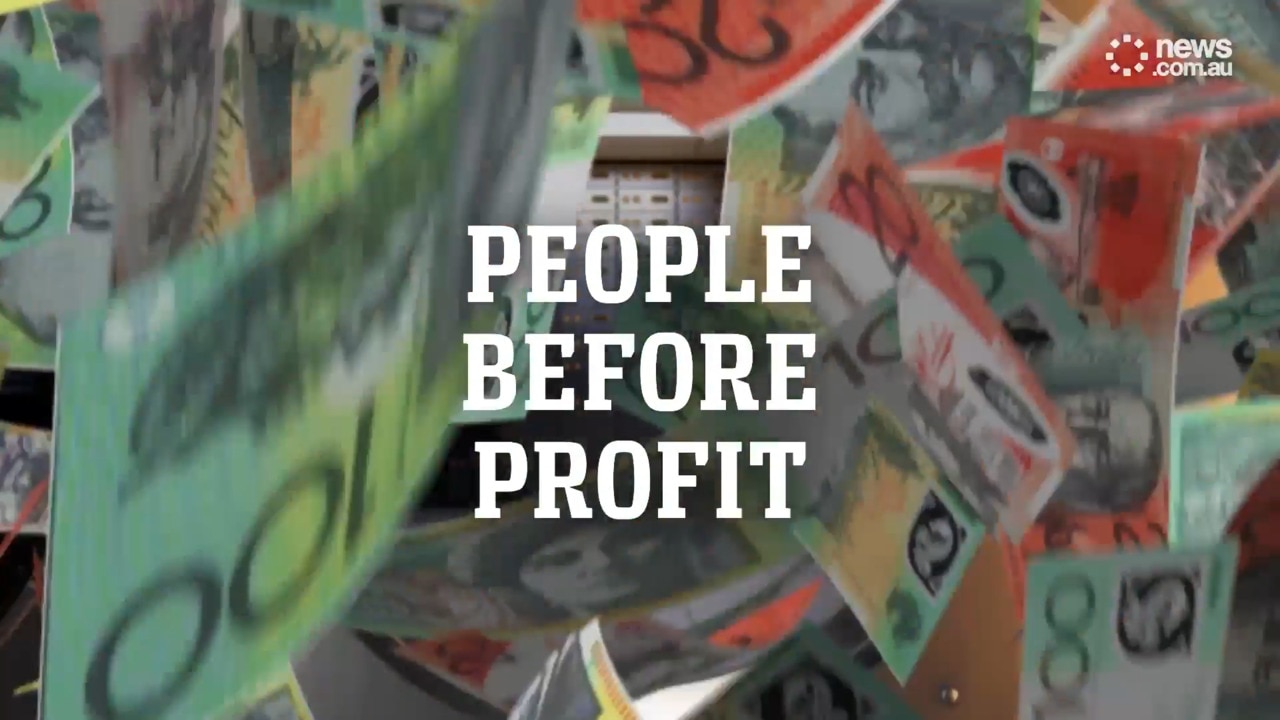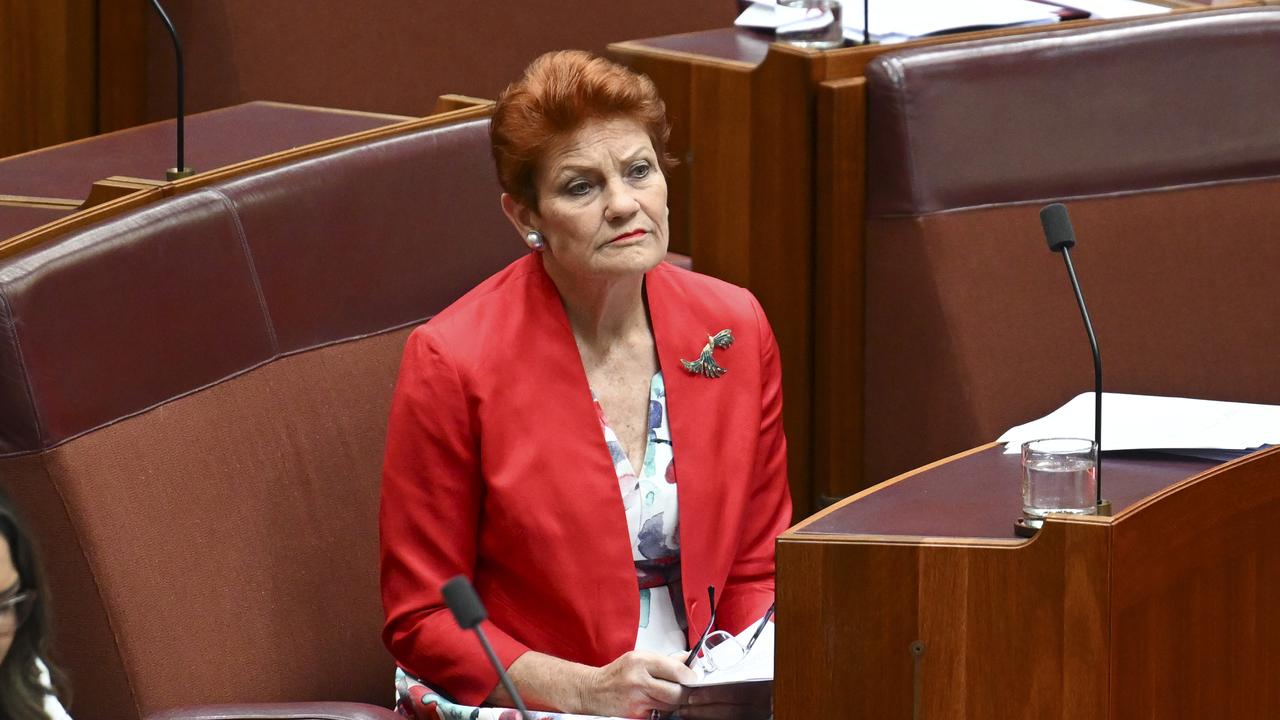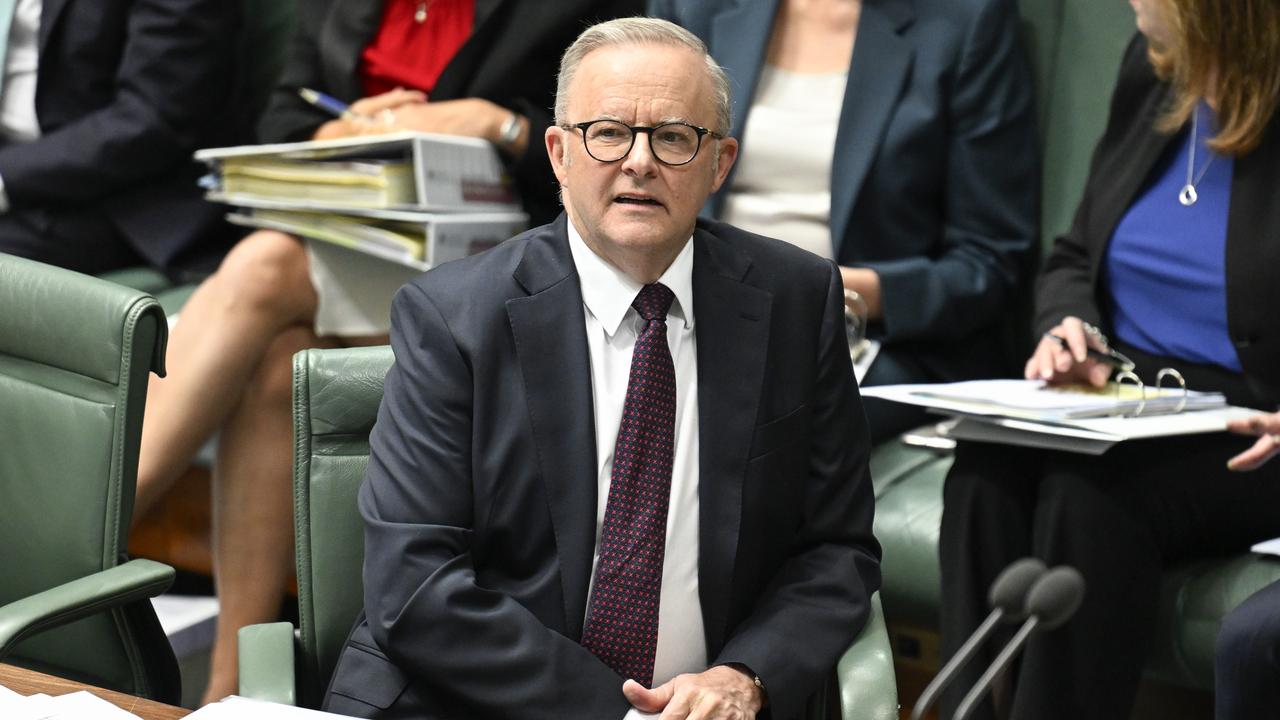Pauline Hanson adds to growing calls for banks to pay scam victims mandatory compensation
The One Nation Leader has thrown her support behind a much-needed proposal that could see Aussies $165,000 better off.

One Nation has announced plans to introduce legislation making it mandatory for banks to reimburse scam victims.
news.com.au last week launched People Before Profit, calling on the federal government to make it mandatory for banks to compensate scam victims – just like in the UK.
In October last year, the UK introduced world-leading legislation making compensation mandatory for scam victims within five business days except in cases of gross negligence.
Scams are a scourge on Australia, with Aussie victims losing up to $3 billion in the most recent reporting period, while the big four banks raked in a combined $30 billion in profit.
A number of the smaller political parties and a handful of independents have already thrown their weight behind news.com.au’s calls.
On Wednesday afternoon Senator Pauline Hanson has also revealed she supports the scheme.
IT’S TIME BANKS PUT PEOPLE BEFORE PROFIT. SIGN THE PETITION HERE.
Senator Hanson said One Nation will introduce a bill for a scam victim protection law that will require banks to pay back as much as $165,000 within five business days.
“Similar laws have recently been introduced in the United Kingdom, and One Nation considers there is an urgent need for them in Australia,” Ms Hanson said.
“On a per-capita basis, we are one of the most scammed nations in the world.”
According to Content Renegade, Australia loses $100 per person to scams, while the US loses $45. The UK, which recently introduced the new law, only loses $34 per person.
Consumer Action Law Centre research last year found 75 per cent of Australians believe the government should introduce laws to force banks to refund customers who were victims of a scam.
Meanwhile, a reimbursement scheme was also recommended by the Australian Competition and Consumer Commission as far back as 2020.
Consumer Action Law Centre chief executive Stephanie Tonkin said Australia’s inaction on scams has made us “the world’s honey pot for scammers”.
“We could introduce a world-leading framework that provides the highest incentives on industry to invest in scam prevention and reimburse customers when they get it wrong,” Ms Tonkin previously told news.com.au.

It’s an issue bringing together those on all sides of politics, with the Greens, Independents and even a member of the National Party previously calling for the law change.
Nationals MP Anne Webster recently fell victim to a sophisticated scam herself – with $9000 fraudulently spent on her credit card – after she attempted to book accommodation through a website she thought was the Hyatt.
She said the scam left her feeling “incredibly vulnerable” particularly as “you don’t know if it’s going to stop”.
Dr Webster claimed there was “no action” from NAB after she approached them multiple times about the matter.
She only received a refund from NAB once she informed the bank she planned to talk about her experience in parliament, she said. However, she added NAB’s response wasn’t right as “not everybody can effectively put pressure on like that”.
Constituents have reached out to her about losing their life savings to scammers, leaving her horrified.
Greens senator Nick McKim said Australia needs to adopt the successful UK model of reimbursement, which ensures that banks initially refund scam victims. “Labor’s proposed framework is weak and ineffective. It’s designed to protect bank profits rather than benefit consumers,” Senator McKim said.
ACT independent senator David Pocock previously told news.com.au “we urgently need a strong scams protection framework that includes a reimbursement model so Australians aren’t left out of pocket.
“The bill tabled by the government does not provide strong enough protections for consumers and is tipped too far in favour of the banks,” Senator Pocock added.

The government’s answer to the scam problem is the Scam Prevention Framework, a senate report recommending that legislation be pushed through aiming to tackle the scams.
Assistant Treasurer Stephen Jones previously told news.com.au the government was bringing forward the “toughest legislation in the world”.
He said they were working to ensure “consumers get swift access to justice and that we have all the right incentives in this case to protect their interests”.
The majority of the government’s effort is into prevention so the scam doesn’t happen in the first place, he said.
The problem is, it has no mandatory requirement to compensate scam victims, according to consumer advocates.
It will pit a victim against “well-resourced multinational corporations such as Meta and Google, or a major bank or telco’ in a David and Goliath battle”, Greens Senator Nick McKim said.
As unveiled by consumer groups, this would be a complex, legalistic and a time and resource draining task for victims, he said.
“Labor’s Scams Prevention Framework Bill could have been a much needed opportunity to crack down on the harm caused by scams,” Mr McKim said. “Disappointingly, Labor has chosen to prioritise the interests of their political donors – the major banks with their multibillion-dollar profits – over the interests of everyday people.”
The Australian Banking Association argued that mandatory legislation isn’t required as they argued that unlike the UK, Australia is tackling scams from every angle.
“Our world first approach will ensure all parts of the scams chain are held to account for the actions they take to protect customers,” a spokesperson said.
More Coverage
Australian Banking Association boss Anna Bligh said it was a “whole ecosystem” approach needed to stop the scam scourge.
“Banks can’t fix telecommunication systems, social media platforms can’t fix telecommunication systems, telcos can’t fix bank accounts but together we’ve all got the power to really tighten the net,” Ms Bligh told news.com.au.
“We should be able to aspire to be one of the most scam free countries in the world. And I don’t think that’s impossible and I think we’re well on the way.”





